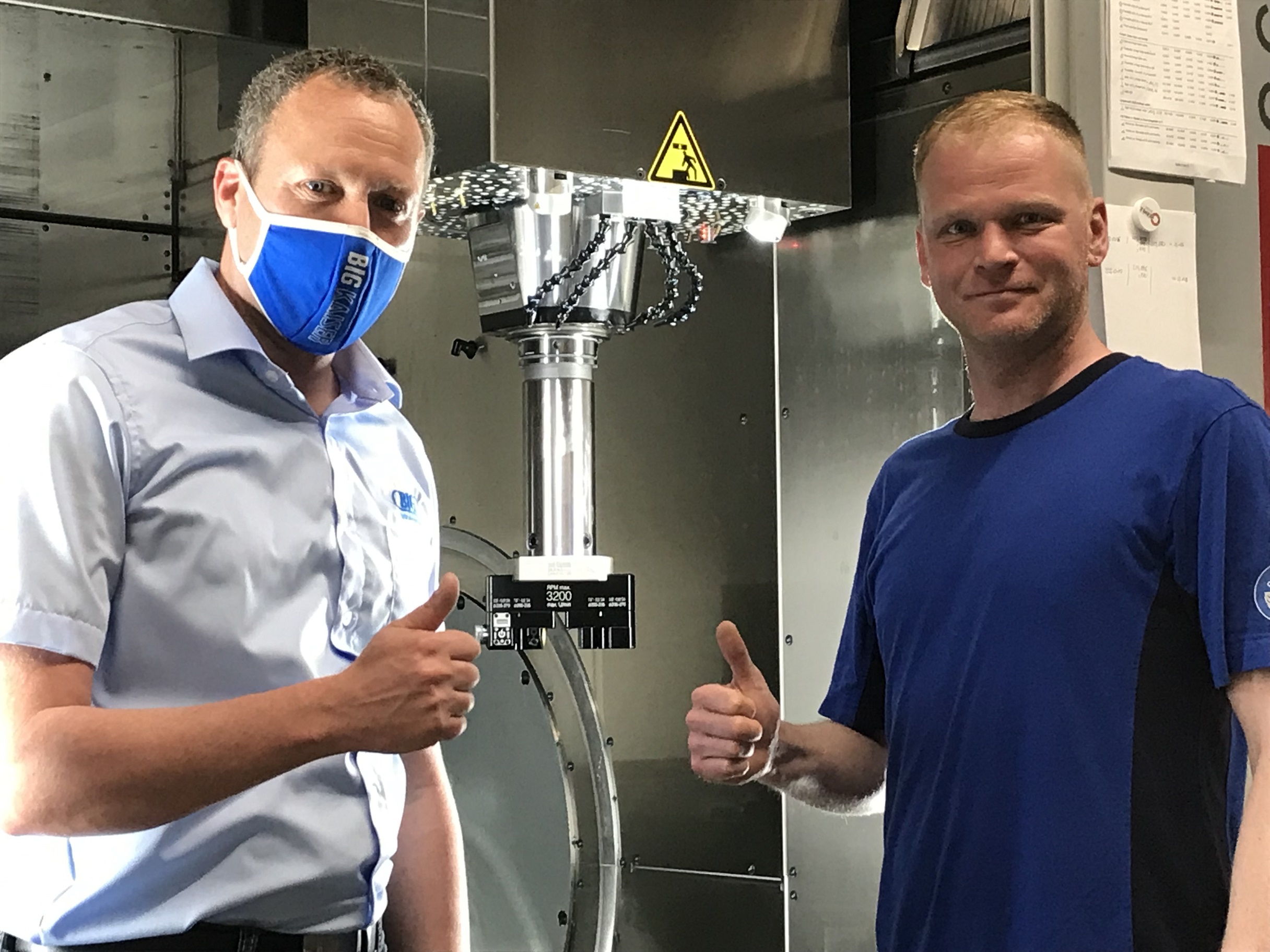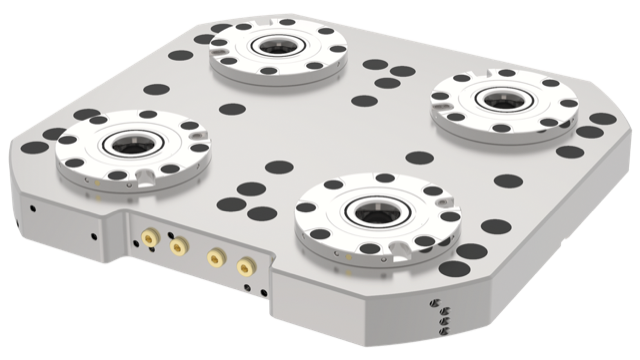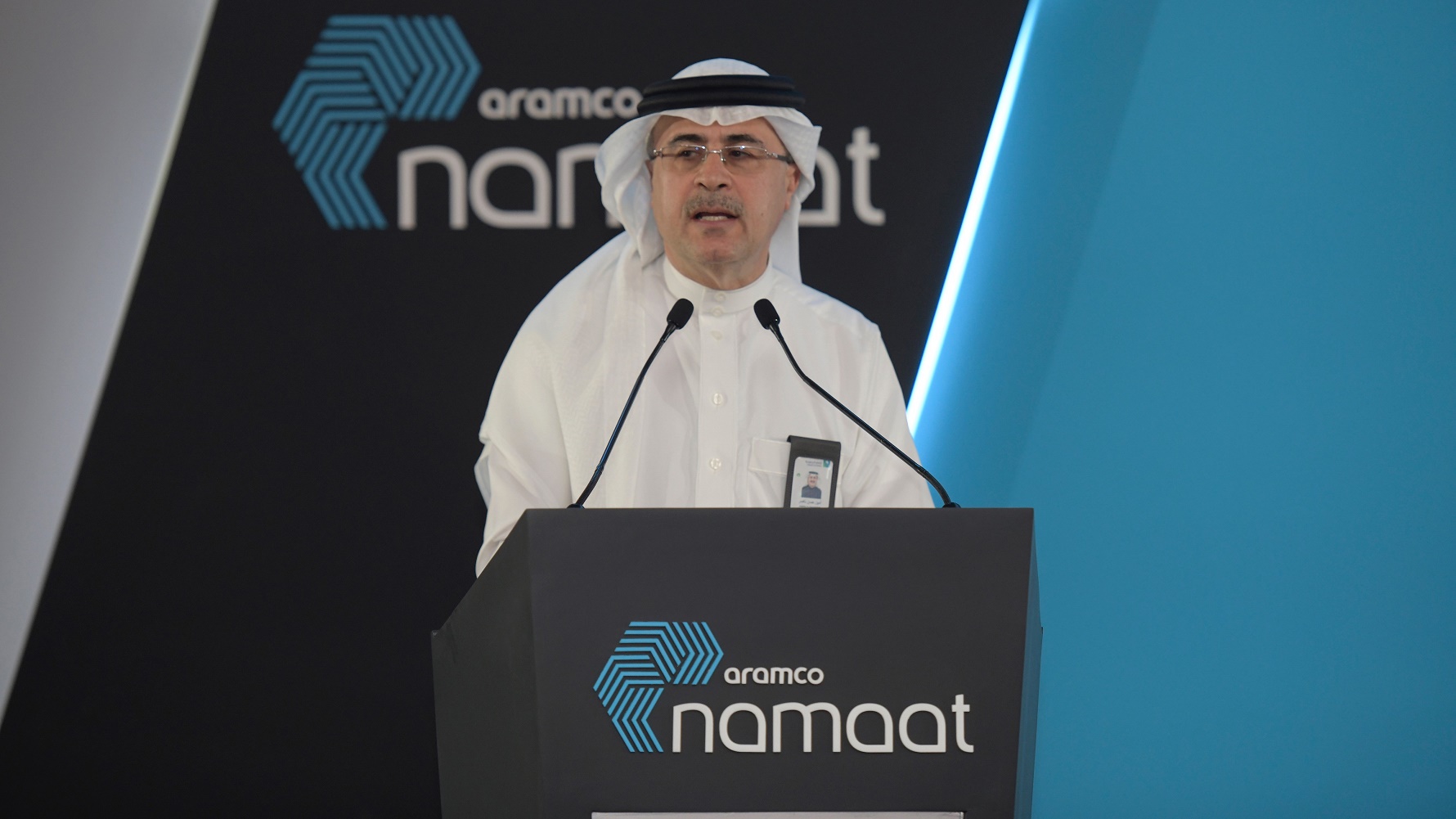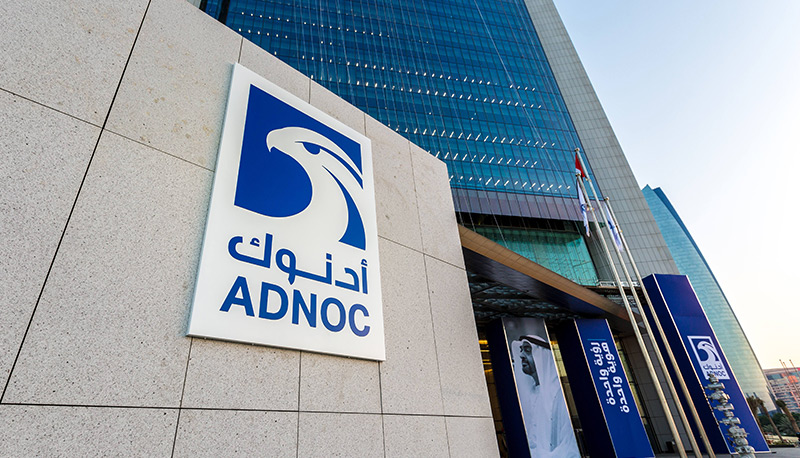Focusing on the production of components for machine tools, as well as main spindles, SPL Präzisionsfertigung GmbH in Germany demands the utmost in precision. For this reason, the company invests in boring and tooling technology from Big Kaiser, which is available in the UK from cutting tool specialist Industrial Tooling Corporation (ITC).
Andreas Pilz, the managing director of SPL Präzisionsfertigung GmbH, which was founded in 2007, says: “We started with just 14 workers and today we employ 30 highly skilled employees. We produce all manner of parts for turning, milling and grinding spindles, as well as special spindles and test-bench spindles.”
The production of main spindles requires the utmost precision, accuracy and care, so from the very beginning, SPL has regularly invested significant resources into employee training and state-of-the-art technology. In 2019, the company took the decision to build a brand new, air-conditioned production hall, purchasing a high-precision machining centre from Hermle together with all the necessary tools and accessories. This investment enabled SPL to stay on top of precision manufacturing, enabling the production of spindle housings, which are now an essential segment in its product portfolio.
For the task of finish-machining prismatic parts or spindle housings, SPL has also purchased a Hermle C62U five-axis machining centre.
“We made the decision to invest in a state-of-the-art machine and I remember writing to various manufacturers, but Hermle was the only supplier not discouraged by our demanding specifications and strict accuracy requirements,” explains Pilz. “This cutting-edge five-axis milling machine meets the most stringent demands in terms of machine kinematics and positioning accuracies, which are necessary for production in the ≤0.005 mm range.”
SPL utilises fine boring heads from Big Kaiser to ensure that the bearing bores in the spindle housings also meet the company’s precision tolerances.
“It was while machining a test workpiece at the headquarters of the machine manufacturer Hermle in Gosheim that we first saw the fine boring heads from Big Kaiser in action,” says Pilz. “The quality of the bores was second to none and convinced us from the very outset that Big Kaiser was the optimal choice. We would not only be purchasing a high-precision tool, but also gaining access to expert technical support and assistance from Jochen Renz, technical manager of customer service at Big Daishowa, the sister company of Big Kaiser in Germany. This was extremely important for us, particularly concerning our strict parameters such as rotational speeds, cutting and feed rates.”
SPL relies heavily on the digital EWE fine-boring heads from Big Kaiser.
“The industrial components that SPL produces are very expensive,” points out Enrico Müller, application engineer at Big Daishowa. “So it makes sense to rely on the proven quality provided by Big Kaiser’s digital fine-boring heads. We would use them regardless, even if only to eliminate reading errors in the very tight tolerance ranges under which we operate,”
Adds Pilz: “Another advantage of digital fine-boring heads is their ultra-fine handling accuracy. High-precision machining requires the utmost care and cleanliness. When manufacturing in the micron range, the machine, as well as the tool, must also ideally be in the micron range. In our situation it’s a clear-cut case with no room for compromises.”
Big Kaiser has a modular system that covers all diameters and lengths. Fine-boring heads can be adapted in a modular fashion to diameters and boring depths with various adaptations. The HSK-A 100 tool interface and the solid extensions provide high stability, even at great depths. Due to the system’s vertical tool infeed design, errors caused by tool deflection are prevented and the achieved cylindrical shape of the bores is less than or equal to 0.005mm.
The EWE fine-boring heads feature a high-precision insert-holder diameter adjustment. Since SPL spindle diameters range from 60 to 400 mm diameter, with bore lengths up to 800 mm, the company uses bridge tools from the 318 series. The 318 series is suitable for various applications such as roughing, finishing, tenoning and face grooving. It is based on aluminium bridges of varying lengths that can be combined with a variety of aluminium and steel components for roughing and finishing configurations. The tool components are plugged on to the bridges at specific points and bolted in place. As a point of note, the precise positioning of the components on the bridges, together with setting scales for the fine-boring heads, allows for fast and easy diameter setting.
SPL also uses Big Kaiser spindle tools for roughing operations on an MTE milling machine. However, in this application, two cutting edges are utilised on the tool, not just one as is the case with finishing.
“Mr Müller, who has worked together with us on the project from the very beginning, came up with the great idea, right on-site, that we could try roughing using a two-flute cutter on our MTE,” explains Pilz. “As a result, our machining speed is now five times greater than before with the milling tool. This is important, we’re talking about an 80% time improvement, not to mention a better surface finish and reduced costs.”
Now, 15 fine-boring heads from Big Kaiser are in use at SPL, for the fine boring of bearing bores and roughing during re-boring.
“We could not be more satisfied with the results,” concludes Pilz. “The tools, the service as well as the advice are all top-notch, there is simply no other way to put it. Our industry places the highest possible demands on us in terms of precision, accuracy and quality. Nevertheless, with the tools from Big Kaiser, coupled with their consulting competence and on-site support, success is practically guaranteed. In this case, we’re also a little proud that we’ve earned our place in the ≤ 5 µm range.”
For further information www.itc-ltd.co.uk

















